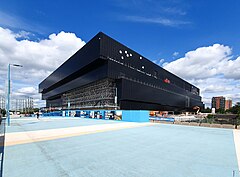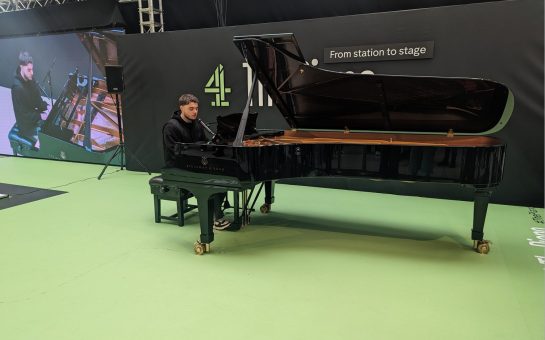On Harry Potter’s 20th anniversary, Manchester broadened its sporting horizons last weekend by hosting the Quidditch Premier League fixture.
The sporting spin-off from the world of Harry Potter is already played by hundreds of people around the country who came together on Saturday to fight for the top spot.
Teams spent the day competing in Platt Fields Park in Fallowfield – in a contest hosted by the Quidditch Premier League (QPL).
In recent years, quidditch has become increasingly popular due to its inclusivity, allowing men, women, transgender and non-binary people to all participate.
Jennifer Elizabeth Hughes has been playing quidditch for three years and said how important the sport had been during her transition.
She told MM: “Trying to fit into normal sports is really hard; when I was at university I couldn’t play for the women’s rugby team because I wasn’t genetically female, but I couldn’t play for the males because I wasn’t male, and then I found quidditch.
“When I joined three years ago I had just stared my transition and I was really nervous and coming into the sport and finding out there’s a lot of other transgender people around made me feel so much more comfortable.
“Being autistic as well as trans, making friends is really hard so when you’ve got a load of people on the same wavelength as you and you get to see them every week at training, every month at different tournaments it’s great.”
Unlike the famous wizarding books, rather than flying around on broomsticks, the players take to the field in a game which is a mixture of lacross, rugby and dodgeball.
The QPL was founded last November, and director Jack Lennard said it was thanks to the sports inclusive nature that it was becoming such a hit with the younger generation.
Speaking to MM he said: “Quidditch is inclusive for men and women, but it’s also inclusive for trans people because they can identify as the gender that they are rather than the sex they were assigned at birth.
“Any other sport if you were trans you would have to go through rigorous hormone testing and genitalia testing and all sorts of very uncomfortable things which have been proven to put trans people off sport.
“For that reason we have a lot of trans people who are very athletic, very excited about contact sport but have little opportunity to get involved at a high level.”
The sport which developed from the famous series by JK Rowling now has over 20,000 players competing internationally from 25 different counties across the globe.
If you are interested in getting involved in playing quidditch, visit Quidditch UK at: https://quidditchuk.org/ or go along to a fixture to speak with team members.



